ADELINE
Two brothers stand at opposite sides of the bed where their father, King Dumnorix, lies dying.
The king looks sadly between his sons, weakly holding out pale, trembling hands. Each son steps closer to the bed and grasps one of his hands.
A wooden stake protrudes from Dumnorix’s chest, and it is the only thing keeping him alive. If someone were to pull it out, the king would bleed to death almost instantly.
As it is, he is fading fast. His breath is barely above a whisper, so low that the brothers have to lean over to hear him.
“Stop…fighting with each other,” the king rasps out. He coughs, the sound more a gurgle than anything else as he chokes on his own blood, a little bit dribbling from the side of his mouth.
The brothers solemnly promise, but it is an empty pledge, for they have no intention of giving up their fight.
The king’s eyes narrow as he looks at his sons, and the corners of his mouth turn down. It’s as if he knows his dying wish will go unheeded.
“The kingdom needs a ruler,” he says. A tear falls from the king’s eyes, and then they go blank.
King Dumnorix is dead.
It is a sad day, not only for the brothers, but for the kingdom, as well. King Dumnorix ruled the country for more than a millennium, and he was considered a fair and just king.
Even though he was a vampire.
Typically, the oldest male heir would inherit the throne, but the brothers were born on the same day in the same hour to different mothers.
Half-human, half-vampire, and half-brothers, the two are as different as night and day. One has raven-black hair and brown eyes, while the bigger and broader brother has deep red hair and grey eyes.
Known as the “half-kings”—a term they both hate—since neither is the sole ruler of their father’s kingdom, the siblings also have vastly different methods for ruling.
The raven-haired one is more of a politician and thinks himself a diplomat, while the brawny, red-headed sibling is a warrior with many battle scars as a testament.
This divide has trickled down to the villagers—some follow the politician, and others the warrior.
The brothers build a funeral pyre and stand silently, watching their father’s cloth-covered body burn. Once the ceremony is over, they glare at each other and walk off in separate directions.
Their whole lives, the brothers have competed against each other: first for their father’s love and attention, then for their desire to be the sole ruler of the kingdom.
Neither expected King Dumnorix to fall in battle, and both assumed they had more time to secure their seat as king since their father had left them to rule jointly until he named his successor when he retired.
The dark-haired brother retreats to the castle, claiming it as his own, while the warrior chooses the woods and the cottage where he usually sleeps. The warrior is not as comfortable with castle intrigue and comforts, having spent most of his life on one campaign or another.
As the days pass, both siblings become restless, each believing the other is plotting their demise to seize the throne for himself.
The warrior’s followers urge him to take action before it is too late, and the politician’s supporters suggest a peace offering, something to prevent a war.
In the end, the brothers decide to meet, using their mind-link to set the place: a large field on a cliff overlooking the sea.
They cannot agree on anything. Their tempers flare. The warrior reacts instinctively and draws his sword, and the raven-haired brother draws his, as well.
Though vastly different in looks, thoughts, and deeds, the siblings are evenly matched. As their supporters watch in horror, the brothers battle each other.
Blood is spilled, dripping onto the wet grass with each nick and slash. The fight continues for a long time until each one sees an opening and attacks with full force.
The brothers manage to impale each other at the same time, causing mortal wounds to their human bodies. They drop to their knees, still holding swords buried to the hilts in each other’s flesh.
The soft whisper of a breeze carries with it the scent of blood.
The silent villagers watch with eyes wide and hands over hearts and mouths as the brothers fall to their sides together, facing each other.
Neither lets go of their sword.
As they were born on the same day in the same hour, so do they die.
A murmur rises, growing louder. The half-kings are dead. Who will rule the kingdom now? What will happen to them? To their children and families?
Who will protect them from enemies of the crown? Who will provide grain and meat when their stores run low? What will they do?
Just as hysteria threatens to take hold, a sudden crackling echoes across the field. The people look up to the sky, expecting thunder and lightning, but it’s as clear and blue as it was earlier.
A strange tingling spreads, and many villagers pat their heads, brushing down strands of hair that somehow seem to be standing on their own.
A breeze kicks up, whipping skirts against women’s legs and making men hold onto their hats and pull their jackets tighter.
Golden light appears, hovering over the brothers’ bodies. The onlookers watch with a mixture of fascination and fear as the light takes on a woman’s shape.
Gasps rend the air, and people drop to their knees, bowing until their foreheads touch the wet grass. Even before the woman’s feet land on the ground, they know who she is.
The Di’an Dulaine, the goddess of the Di’an people.
She looks at the brothers and shakes her head sadly. King Dumnorix had been a good friend of hers for centuries.
She often counselled him on how to handle his wayward sons, and they spoke many times about his concerns. She knows that with his last breath, the king told his sons to stop fighting, and she knows that they promised to do so.
Instead, they defied his wishes, went back on their word, and killed each other.
Only their human bodies have died. The vampire blood in them will heal their mortal wounds, and they will once again walk the Earth.
She thinks of the prophecy, delivered so many millennia ago. It spoke of the vampire half-brothers and how they could someday become the most powerful rulers in history and beyond.
But their greed for the throne and animosity toward each other could set them against each other. If that should happen, the prophecy foretold a punishment that would be delivered by The Di’an Dulaine upon the brothers’ death.
That day is here, and it is up to her to continue the prophecy. She stares at the men, the brothers she watched come into the world and grow into the men they are today.
Sadness envelops her for a minute, and then fury takes hold. She waves a hand over them, and their eyes open. They are not yet alive, but her spell makes sure they hear and remember her words.
“You have disgraced your father, King Dumnorix,” she begins, her voice rising to be heard over the wind as it picks up, blowing so hard the villagers find it hard to remain kneeling in reverence to her.
The Di’an Dulaine, though, isn’t affected by the wind. Not a hair on her head moves. It’s as if she is protected by some kind of invisible shield.
“You have gone back on your word, despoiling your family’s name and reputation. For this, you will suffer for a thousand years.”
She raises her hands toward the sky, and tiny blue sparks fly from her fingertips. “After a thousand years have passed, a priestess of my bloodline will appear, and it is she who will have the power to name one of you as the true ruler.”
She lowers her arms, her hands hovering above the brothers as blue sparks shoot from her fingertips to encompass them. They lay unmoving, still holding onto their swords.
“Only the one who can unselfishly give up that which he loves most will be deemed worthy by the priestess to inherit the throne and the kingdom.”
With the prophecy given, The Di’an Dulaine disappears in a flash of golden light.
The brothers’ followers carry off their bodies—the raven-haired politician to the castle and the red-headed warrior to his cottage.
When they awaken, they are fully aware of The Di’an Dulaine’s words, but their hearts are still too filled with anger and greed.
Eventually, as the Di’an people either assimilate into other cultures or die out, so, too, does worship of The Di’an Dulaine. Stories about the powerful priestess fade until finally there is no one living to worship her, meaning there is no longer a priestess to lift the curse. The brothers are forced to resign themselves to eternal life as the dreaded “half-kings,” neither with any hope of realizing their greatest desire: to be the sole king of their father’s kingdom.
***
Adeline Knight closes the old book loaned to her by her grandmother and leans back against her headboard. Her fingers trace the title: The Prophecy of the Vampire Half-Brothers and The Di’an Dulaine.
She sighs, closing her eyes with a smile on her face and hugging the book to her chest. She’s always been fascinated with cultures and legends, especially the Di’an from Ireland. And now, finally, she will be leaving her Maryland home to go to school in the land of the Di’an.
She can’t wait.


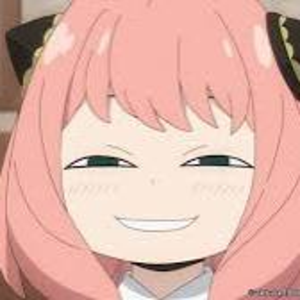
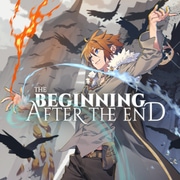
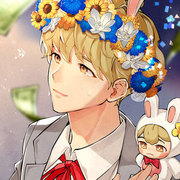
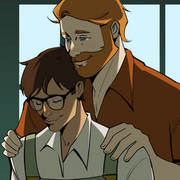
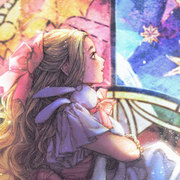
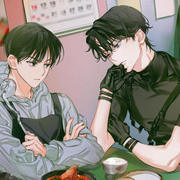
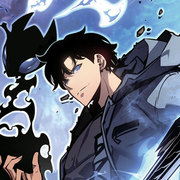

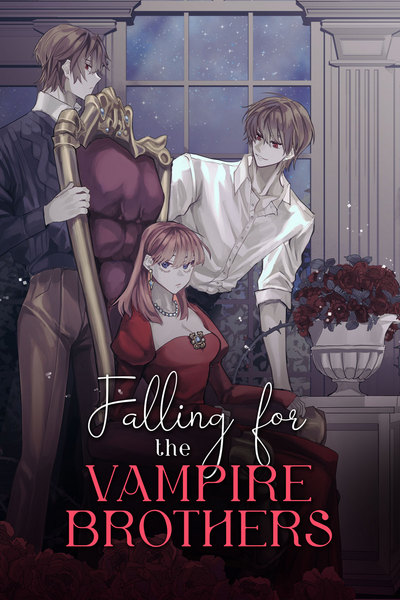
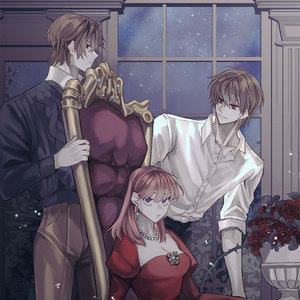
Comments (5)
See all